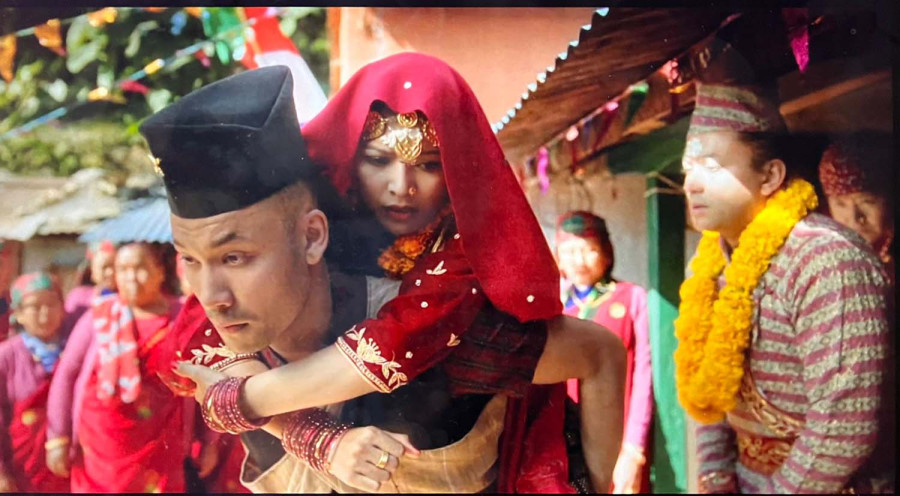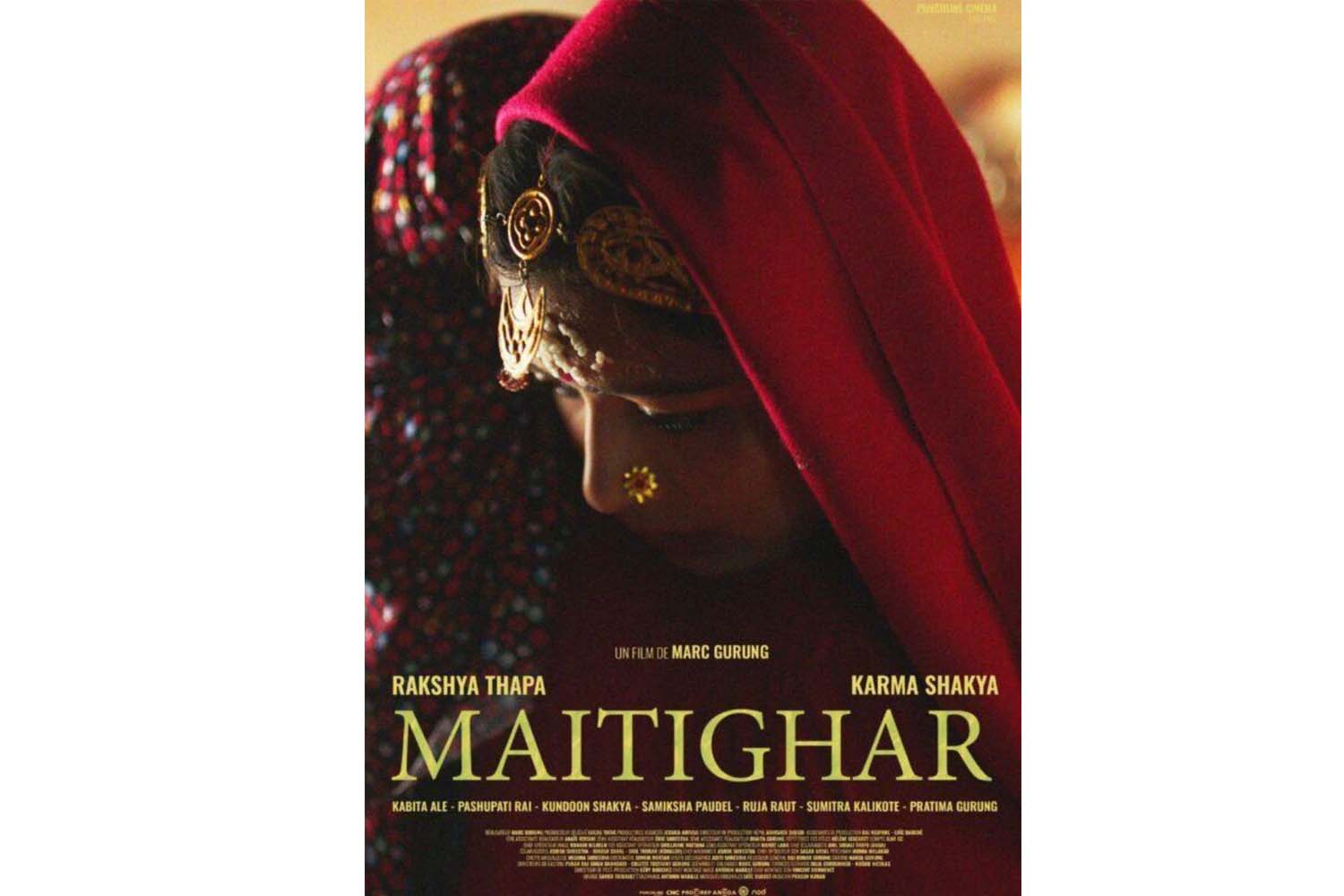Movies
Laughter fades, childhood ends
In 15 minutes, ‘Maitighar’ paints a moving portrait of womanhood and their cultural duty.
Reeva Khanal
In a cinematic landscape often dominated by dialogue-heavy dramas, Marc Gurung’s ‘Maitighar’ speaks through silence and sends a subtle message. Presented by Punchline Cinema, this 15-minute Nepali-language short film is a deeply rooted experience of womanhood, cultural trap, and emotional awakening, painted with few words but profound emotions.
The movie opens with a refreshing portrayal of girlhood—Asha, played by Rakshya Thapa, is seen in a relaxed night setting with her friends, perhaps at a fun fair. There’s laughter, teasing, and playful debates about crushes and dreams. It’s a moment of lightness, warmth, and freedom that feels real, unfiltered and familiar.
Set against the lush, green backdrop of the Himalayan foothills, ‘Maitighar’ follows Asha. Thapa brings honesty and depth to the role, subtly expressing Asha’s confusion and vulnerability. After a joyful evening with her friends, Asha is picked up by her brother and returns home. But what should have been a warm return quickly changes, marking the beginning of her journey into adulthood—from a free-spirited girl to someone now expected to carry responsibilities.
However, the film’s quick jumps between scenes can feel confusing. The flow is slightly disrupted, making it seem like parts of a larger story or series have been cut together. A smoother transition between moments could have made the emotional impact even stronger.
The film gracefully reflects the Magar community and its rural life, grounding its themes in a distinct cultural context. Traditional attire, household rituals, and the mountain scenes aren’t just background details—they’re characters in themselves, shaping Asha’s internal conflict and journey.
The cast, though minimal in dialogue, delivers emotionally rich performances. Karma Shakya as Prabhal is brooding and layered, while Kabita Ale (Maya), Pashupati Rai (Santi), and Kundoon Shakya (Bhunte) portray complex characters shaped by societal norms. Every expression, pause, and glance in ‘Maitighar’ feels intentional, inviting viewers to read between the lines—because the film speaks in gestures, not monologues.

The cinematography captures not just the physical beauty of Nepal’s hills but their emotional undercurrent—vast, isolating, and at times, suffocating. The film uses natural light, simple indoor settings, and long, quiet scenes that pull the viewer into Asha’s silent struggle.
One of the most touching parts of the film is the use of the famous Nepali song ‘Maitighar’. Though not played in full, it is softly heard in the background, adding depth and emotion to the story. The song fits perfectly with the film’s title and theme, highlighting Asha’s quiet shift from the warmth of her home to an uncertain future.
The film tells the story of a young girl who leaves her maitighar—her home—and goes to her husband’s house. This short journey shows how quickly a girl’s freedom can change. It raises questions about choice, growing up, and how tradition can sometimes take away the chance to decide for yourself. ‘Maitighar’ is not just about one girl’s story—it speaks for many.
Although the film is only 15 minutes long, it leaves a strong impression that stays with you. It doesn’t use loud drama, but still makes a deep impact. ‘Maitighar’ is a quiet yet powerful story—very Nepali at heart. Even in its silence, it has a lot to say.
Maitighar
Director: Marc Gurung
Cast: Karma Shakya, Rakshya Thapa, Pashupati Rai, Kundoon Shakya
Duration: 15 minutes
Language: Nepali




 9.83°C Kathmandu
9.83°C Kathmandu












